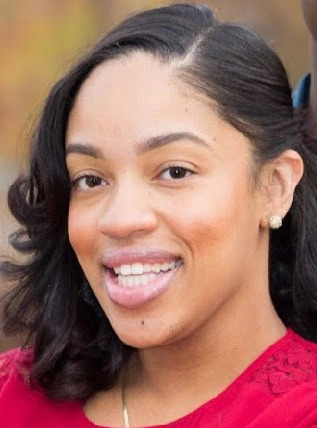Interview with Dr. Ryan Lee-James of Adelphi University

Ryan Lee-James, PhD, is an Assistant Professor in the Department of Communication Sciences and Disorders at Adelphi University in Garden City, NY and a speech-language pathologist certified by the American Speech-Language-Hearing Association. Her work contributes to the larger body of research that is focused on better understanding the impact of African American English dialect use on assessment and treatment of language disorders for children reared in poverty.
Note: You should consult with your doctor or speech pathologist for recommendations on treatment. The views and opinions expressed in this article are those of Dr. Lee-James and do not necessarily reflect the official policy or position of SpeechPathologyMastersPrograms.com
How did you become interested in researching the impact of poverty and use of African American English (AAE) dialect on literacy achievement?
I became interested in this topic while I was an undergrad at Michigan State University when I learned that AAE use can have an adverse impact on literacy. Given that many African American children in the United States do not read on grade level, it was clear that this topic was critically important for the success of African American children.
What are some of the main differences between the AAE dialect and mainstream American English?
While linguistic scholars have identified distinct differences between AAE and AE in all language domains including phonology, morphology, semantics, syntax, and pragmatics�EUR”the most notable differences are between the two are in morphosyntax and phonology and these areas are also most critical for achievement.
How does non mainstream dialect use influence language development?
Interestingly, it is not completely clear how or even if dialect use influences development. However, we do know that rate of dialect use is influenced by socioeconomic status (SES) in that children from lower income families tend do use more dialect features in their speech and because of the known influences of SES on language development and literacy experiences, the impact of dialect use and SES are often conflated.
What are the current challenges of evaluating AAE speakers for speech and language disorders and/or of educating speech-language pathologists (SLPs) to better serve AAE speakers?
I would say the greatest challenge for SLPs is access to and knowledge of current research on this topic. The idea that we still have no idea how to assess and treat language disorders in the context of AAE is just not true. While we have a substantial way to go, researchers have made much progress on this topic but the challenge is getting the information from the research labs to practitioners on the ground.
Are there issues with both overdiagnosis and underdiagnosis?
The evidence in the literature is equivocal. However, recent research on representation of minority (including African Americans) and language-minority children (bilingual children) in special education, suggests that these two groups are underrepresented in the category of speech-language impairment which implicates that these children are underdiagnosed. Recent studies should be interpreted with caution because research shows that different factors impact rates of representation (e.g., SES). Importantly, as practitioners and researchers, we need to be concerned about ensuring equitable representation in special education so that children who need services have access.
How has our understanding of the relationship between dialect and speech and language disorder diagnosis evolved over time?
Our understanding has come a long way from early studies on dialect conducted by sociolinguists that characterized Black dialects as an illegitimate language system to now recognizing Black dialects as rule-governed linguistic systems that serve a social-cultural function but also a rich and complex medium for African American parents to communicate with their children (which has shown to yield complex syntax skills in low-income children). It’s important to qualify this statement by saying not everyone is up-to-date on their views of AAE however, I think it’s accurate to say that most researchers and practitioners share this view which represents tremendous progress on this topic. Importantly though, we now understand that dialect doesn’t cause a language disorder however, its impact on reading and how to improve reading outcomes for this group is the focus of many research agendas�EUR”including my own.
Do you have advice for SLPs who want to better serve patients speaking non mainstream dialects?
Read the literature on this topic. Talk to research and clinical experts who have experience with this population. That’s the only way you’re going to get the knowledge you need to provide evidence-based practice for your clients.
What is your advice for SLP graduate students in general?
My advice to grad students would be to determine your specialization early on. The field is so broad and the truth is, there is no way for every topic to be covered in-depth in the master’s program. One way to combat this is to do independent studies with professors in your department who are experts in the area that you plan to practice. Seek research opportunities and externships in the area that you plan to work in after you graduate with your degree. Doing these things will prepare you to provide evidence-based practice to your clients and will reduce the amount of on the job training in your clinical fellowship year.
Sponsored online speech pathology programs

Online MS: Pursue SLP Certification. Study FT/PT
Speech@Emerson enables you to earn an MS online and pursue SLP certification in as few as 20 mos. Learn the same curriculum as the on-campus program. Study FT or PT.
- Prepares you to pursue certification as an SLP generalist
- In-person clinical placements at faculty-approved partner sites
- As few as 20 months to complete
SPONSORED

Want to Become an SLP? Earn an MS Online at NYU
NYU Steinhardt’s online master of science program in Communicative Sciences and Disorders prepares aspiring speech-language pathologists with a comprehensive professional education.
- Prepares students to pursue SLP licensure
- Accredited by ASHA’s Council on Academic Accreditation
- As few as six terms to complete
- Full-time and part-time plans of study
SPONSORED

